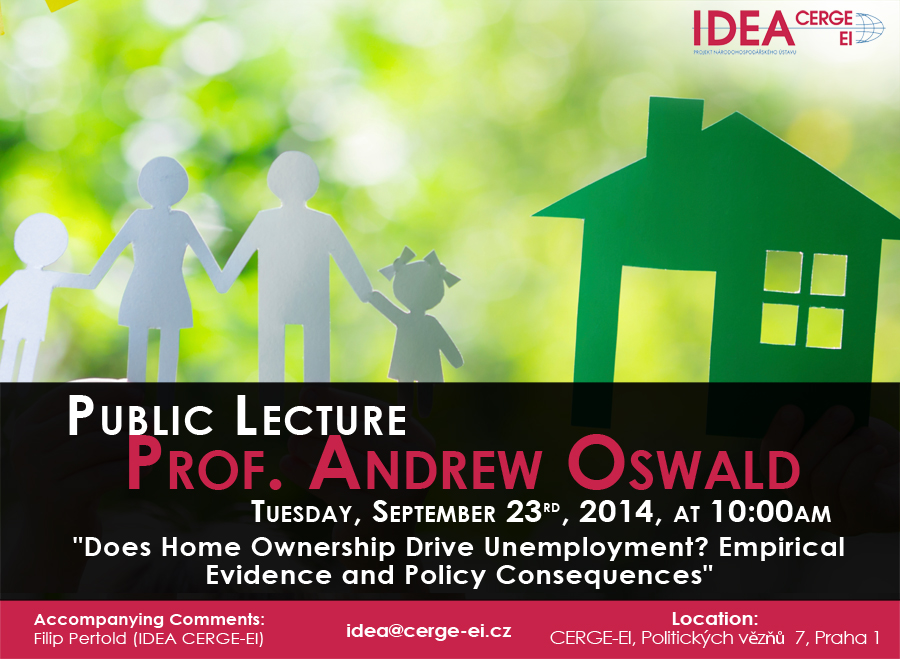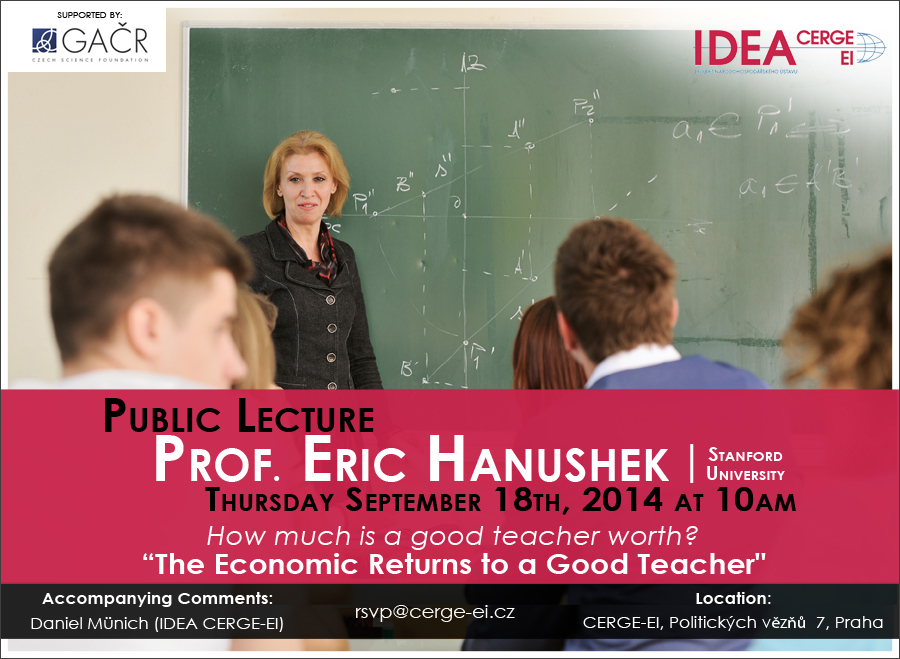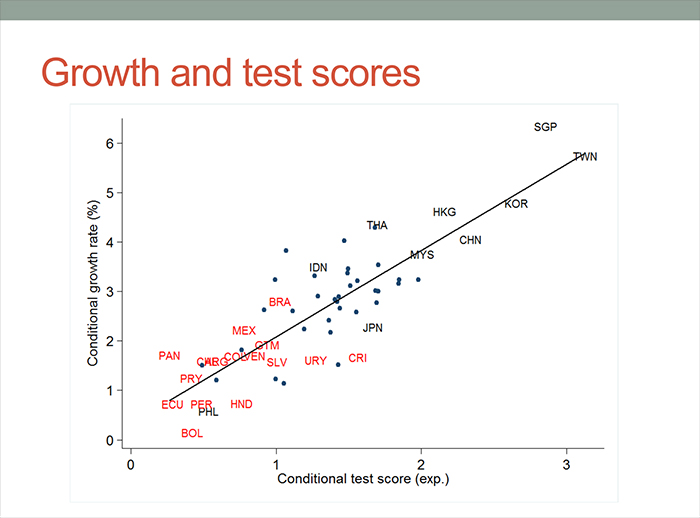Unemployment is a major source of misery in modern society. It is also plainly a waste of resources. So it is perhaps no surprise that macro and labor economists are obsessed with explaining the phenomenon. But are they searching in the wrong place for answers? Professor Andrew Oswald (Warwick University) said at his public lecture at CERGE-EI that he thinks they are, and that he may have found a key.
According to Oswald, economists have typically looked for answers “too close to the source.” Standard explanations have focused on the impact of trade unions, over-generous unemployment benefits, and inflexible labor markets. Yet policies meant to address these issues have made only minor dents on unemployment levels.
Professor Oswald ventured to propose a radically different explanation for the persistent unemployment we observe across developed countries. According to his research, the level of homeownership within an economic area can largely explain the level of unemployment. Few economists have explored this rather unintuitive notion, but as Oswald noted, it is typical for experts to overlook deep structural forces in favor of more immediate explanations.
But how does homeownership negatively impact employment? Oswald considers three possibilities. The first is that higher homeownership lowers geographical mobility. By reducing the flexibility to move between locations, homeownership reduces workers ability to relocate to places where their knowledge and skills may be put to better use. The second possibility is that homeownership contributes to urban sprawl and lower-density housing. Long commuting times and congestion hamper economic activity and efficiency.
Finally, Oswald points out that homeownership directly relates to the ‘Not in My Back Yard’ problem (NIMBY). Homeowners often oppose new productive development projects because they perceive the projects as having negative external effects on their neighborhood. Residents can often team up in homeowners’ unions to block projects from being realized. Even though they often agree that those developments are needed in society, they do not want the development to take place in their ‘back yard.’ As such, NIMBY blocks productive economic activity and development from taking root.
Pondering how a lake becomes filled with water, primitive man would have concluded that it collects the rain falling from the sky. He could not have imagined that hidden streams of water deep underground are the true source. Andrew Oswald’s proposition—that homeownership is the underlying cause of long-term unemployment—is also hidden from sight, but that certainly doesn’t mean it’s not there.
The CERGE-EI Public Speaker Series invites leading international scholars to Prague to present their ideas and engage in public discussion. Learn about upcoming CERGE-EI events here.




